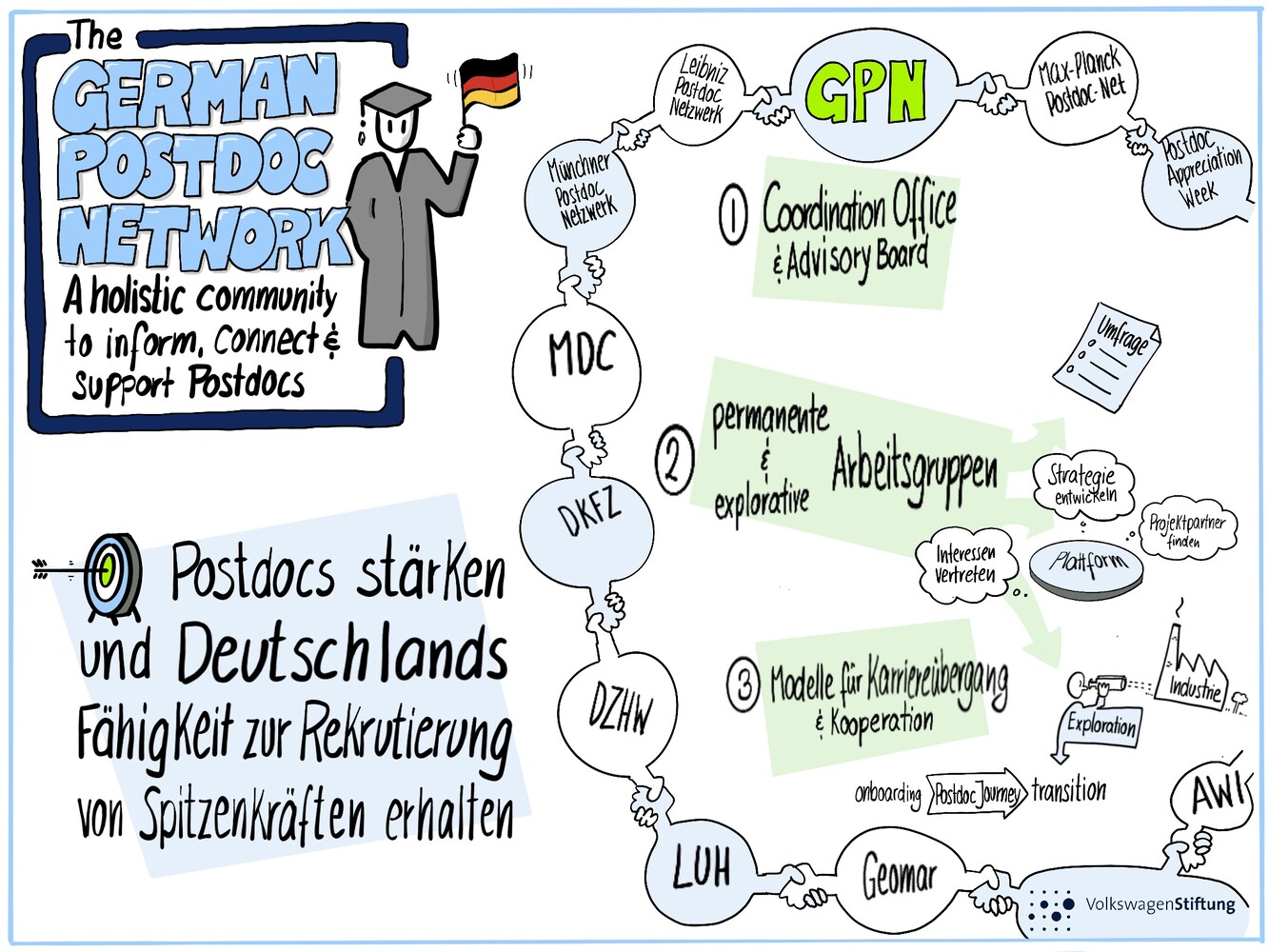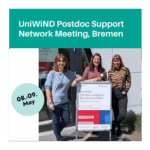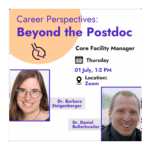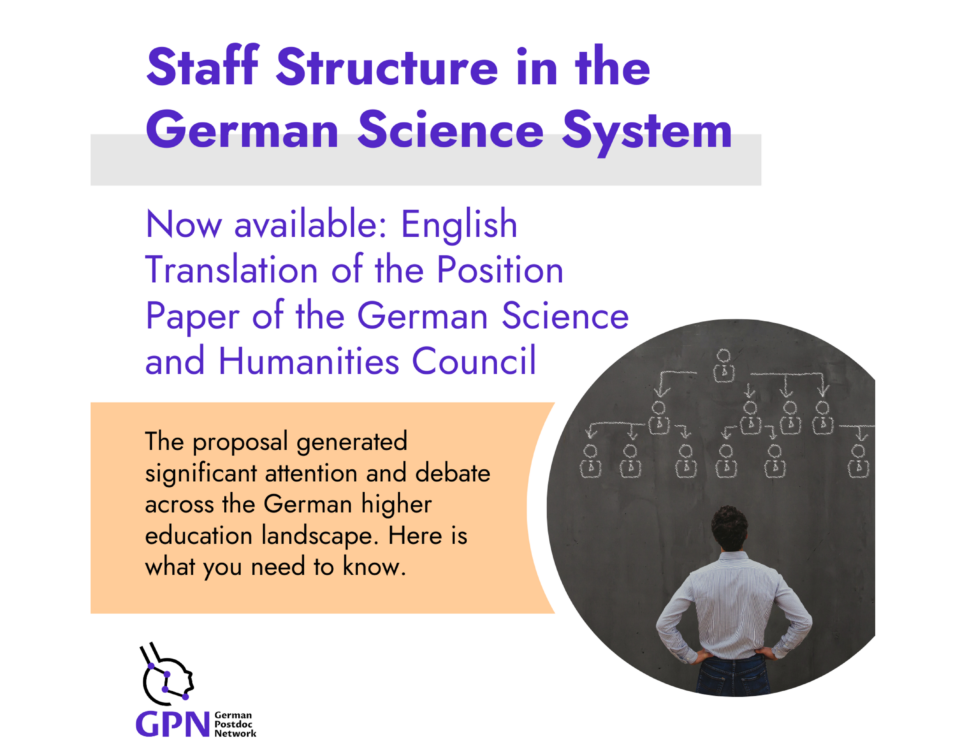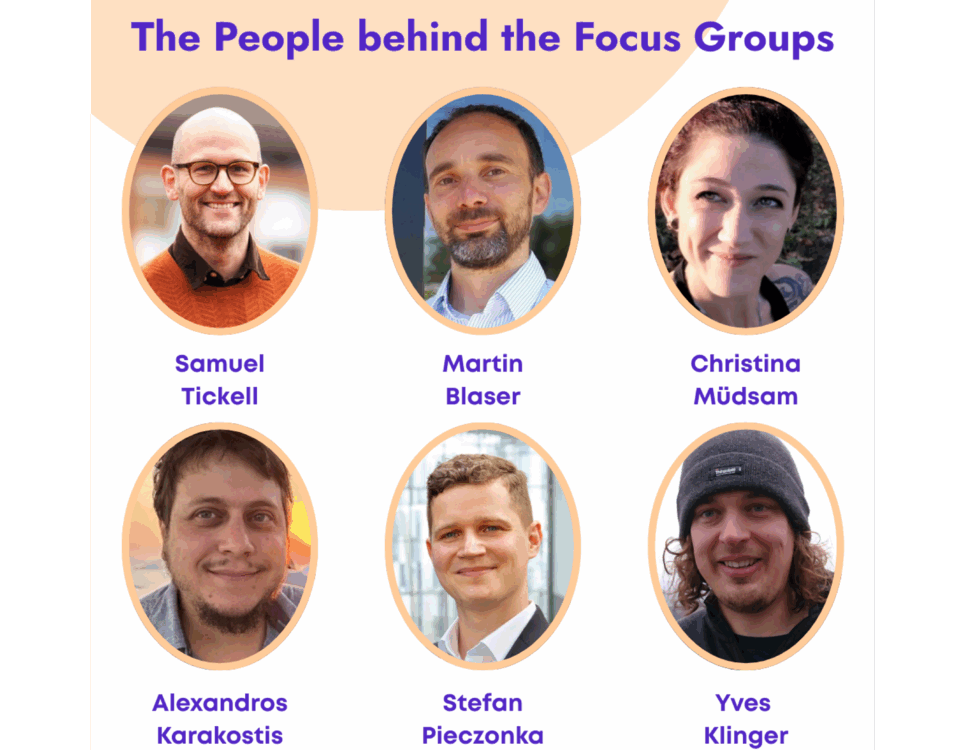Pioneering Projects in Focus: German Postdoc Network
by Dr. Oliver Grewe (Scientific Program Director @ Volkswagen Foundation)
I recently met with Judith Münch, one of the coordinators of the German Postdoc Network, a pioneering project supported by the Volkswagen Foundation. I was impressed by her enthusiasm, reflective attitude towards the situation of postdocs, and her extensive networking within the community.
The initiators of the network, Neele Meyer, Camila Hernández Frederick, and Tina Scheibe, and the second project coordinator, Alexandra McCormack, are also such dedicated and engaged individuals. Together, they not only developed the funding application for the German Postdoc Network, but also previously launched the "Postdoc Appreciation Week Germany" initiative.
Projects like the German Postdoc Network are exactly what the "Impulse für das Wissenschaftssystem" funding line is all about: giving space, a budget, and trust to pioneers to try out new ideas.
What is the German Postdoc Network?
The German Postdoc Network (GPN) was launched in June 2024 with the goal of effectively bringing together postdocs from various disciplines and institutions. The network aims to strengthen both postdocs and the science system as a whole. From the perspective of postdocs, the goal is to have a positive impact on their career prospects and gain more recognition. This can be achieved through a shared, open exchange within the group and effective representation outside.
The GPN is not only a platform for postdocs to network, inform, and work together on solutions, but also connects with established initiatives and organisations, such as the Max Planck PostdocNet, the Leibniz PostDoc Network, and the UniWiND Postdoc Supporter Network, among others. Many of these organisations have been working tirelessly for years to support postdocs.
Why is the Volkswagen Foundation supporting the project?
One might argue that it is the responsibility of postdocs themselves to organise and represent their interests. However, the Volkswagen Foundation is supporting the project because they recognise the need for improvement in the situation of postdocs, including transparent career paths and fair working conditions. Additionally, young researchers enter a highly professionalised and impervious system, where their tasks as researchers and teachers already require a significant amount of energy. Furthermore, postdocs are under high pressure and the establishment of a network to represent their interests is a complex task.
The science system needs strong postdocs
Postdocs are a crucial resource for science, making valuable contributions to research, teaching, and knowledge transfer, and playing a significant role in the innovation capacity of the system. To allow them to develop their potential, they need good framework conditions, networking opportunities, and strategic career planning.
Well-informed and supported postdocs also strengthen the science system as a whole. When highly qualified researchers receive a realistic and transparent overview of career paths early on and make informed decisions, this leads to higher motivation and a better match between individual strengths and professional roles – be it a professorship, science administration, or in the non-academic sector. This reduces dropout rates, and the significant investments in education, care, and qualification remain in the system in the long term. Unattractive working conditions and a lack of perspectives, on the other hand, pose the risk that the best talents will leave the German science system.
Cooperation and competition in balance
The promotion of cooperation between postdocs does not mean that competition and competition between them are completely eliminated. It's about a balance between fair career conditions and the selection of suitable candidates through competitive procedures. In a cooperative culture, there can be elements of competition as long as it remains a sporting and fair competition. The end of an academic career and the pursuit of an alternative career path should not be perceived as a loss, but as an equally valuable alternative if interests and strengths are different from the outset or the first plan was not successful.
How can a single pioneering project impact the entire science system?
For pioneering projects like the German Postdoc Network to become impulses for the entire science system, we need to create a climate of curiosity for new ideas. To make the "Impulse für das Wissenschaftssystem" funding line bear fruit, we need a culture of mutual learning, sharing, listening and joint exploration.
We need brave pioneers like Neele Meyer, Judith Münch, Camila Hernández Frederick, Alexandra McCormack and Tina Scheibe, who try out new ideas. We also need an open, curious community in science and science management, which picks up on good ideas and renews old, long-established processes.
